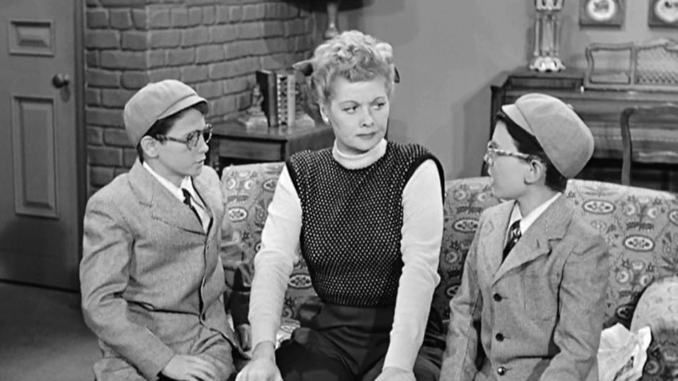
When I Love Lucy first aired on October 15, 1951, no one knew they were witnessing the birth of a television revolution. But by the end of its first season, it was clear that this wasn’t just a new comedy show — it was the beginning of a cultural shift that would redefine the sitcom format, production standards, and the role of women in entertainment.
🎬 A Revolutionary Beginning
Starring Lucille Ball and Desi Arnaz as Lucy and Ricky Ricardo, I Love Lucy followed the lives of a zany housewife and her Cuban bandleader husband navigating love, career, and hilarious misadventures in New York City. But what set the series apart wasn’t just the story — it was how the story was told.
Season 1 introduced television’s first multi-camera setup filmed before a live studio audience — a now-standard format pioneered by the show’s cinematographer Karl Freund and producer Jess Oppenheimer. This innovation gave the show a vibrant, theatrical feel while allowing high-quality filming for syndication — which would later prove invaluable.
Behind the scenes, Ball and Arnaz made bold moves: forming Desilu Productions, demanding creative control, and choosing to film in Hollywood instead of New York, against CBS’s initial wishes. The results spoke for themselves.
😂 Iconic Comedy and Chemistry
From the start, Lucy’s wild antics captivated audiences. Whether trying to break into Ricky’s nightclub act, crashing a TV commercial shoot, or getting stuck in hilarious disguises, her impeccable timing and unmatched physical comedy drew millions of viewers.
Standout episodes like “Lucy Does a TV Commercial” — where Lucy gets tipsy while filming a commercial for “Vitameatavegamin” — remain etched in pop culture history and are still taught in acting and comedy classes today.
The chemistry between Ball and Arnaz — a real-life married couple — translated effortlessly on-screen, delivering emotional authenticity beneath the slapstick chaos.
🏆 Critical Acclaim and Record Ratings
By the end of its first season, I Love Lucy was the #1-rated television show in the U.S., with over 10 million households tuning in weekly — unprecedented at the time.
It won multiple Emmy Awards, including Best Situation Comedy, and Lucille Ball was praised as one of television’s finest comedic talents.
Yet the show wasn’t just about laughs. Through Lucy’s relentless pursuit of identity beyond the home, it subtly challenged post-war gender roles and reflected the aspirations of a generation of women caught between tradition and change.
💡 A Lasting Legacy
Season 1 of I Love Lucy didn’t just launch a hit series — it laid the foundation for modern television. It created a blueprint for sitcom structure, syndication success, and behind-the-scenes business savvy. It also made Lucille Ball the most powerful woman in television at the time — both in front of and behind the camera.
More than 70 years later, I Love Lucy continues to entertain, inspire, and influence creators across the world. The show’s debut season isn’t just TV history — it’s American history.
